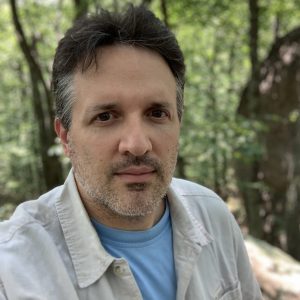Little has changed about the Blue Ridge Parkway since Craig Colberg first visited it in the 1950s.
“My parents drove me on Skyline Drive and the Blue Ridge Parkway when I was just probably 10 years old, and I’ve never forgotten it,” he says. “The beauty of the overlooks, the stonework, how well the road follows the contour of the mountains, the lower speed limit of the parkway, the lack of urgency. It’s a different pace of travel up there.”
As a father himself, Mr. Colberg has enjoyed the parkway’s charm with his wife and four sons for more than 20 years from their home in Charlottesville, Va., at the foot of the Blue Ridge Mountains. Ten years ago, he noticed a small Christmas tree farm along the parkway at Milepost 25 in Nelson County. The property shared about a mile of frontage on the road and sat amidst sweeping views of the surrounding valleys. “I told my wife it was the most beautiful property I had ever seen,” he recalls.
In 2009, he learned that the 365-acre farm was for sale. His interest was piqued.
The seller was Lexington-based Washington and Lee University, which owned the farm since 1977. The property was a gift from a family who wished it to be used for the benefit of the school. For decades, W&L operated Skylark Farm, as it was called, as a retreat and conference center. In recent years, however, the school couldn’t justify the cost of maintaining the property. It put Skylark Farm on the open market with an asking price of $4.5 million.
When the National Park Service learned that the property was for sale, it became concerned. The parkway is the most-visited unit in the National Park System, with an estimated 16 million visitors annually. “Most of our visitors come to enjoy the scenic views, and Skylark Farm sits among some of the most beautiful views.” says Blue Ridge Parkway Superintendent Phil Francis. “We were concerned that the property could be developed and could be an intrusion into those views.”
Mr. Francis hoped that Skylark Farm wouldn’t end up in the hands of developers, but there were no guarantees.
Meanwhile, Mr. Colberg explored his options. He learned about the state and federal tax incentive programs for protecting land through conservation easements. An investment manager with a keen sense for finances, he realized that he could purchase Skylark Farm, place a protective easement on it, and recover a significant portion of his costs through the tax incentives.
“The more my wife and I explored it,” he says, “the more attractive we thought it was.”
In October 2010, Mr. Colberg met representatives from the Virginia Outdoors Foundation.
“They expressed that this was one of the most desirable properties on their list of potential easements, and that helped. They could see the value of it, not in a monetary sense but the value in protecting it.”
On Nov. 1, 2010, Mr. Colberg bought Skylark Farm and started the easement donation process. The easement was finalized in December 2011. It protects the views along the parkway by placing permanent restrictions on the number, size, and siting of buildings and other structures.
Mr. Colberg renamed the property Skylark Nature Preserve and Lodge (skylarkva.com). He continues to offer it for events and retreats just as Washington and Lee University did. He also offers hunting trips and continues to grow and sell Christmas trees.
“This is really a win-win program,” Mr. Colberg adds. “There is public good to it that’s a tremendous win. There is a private good to it from my family’s point of view because it helps us afford the property. And there is a wonderful sense of knowing that this property is going to be the same for a very long time.”
